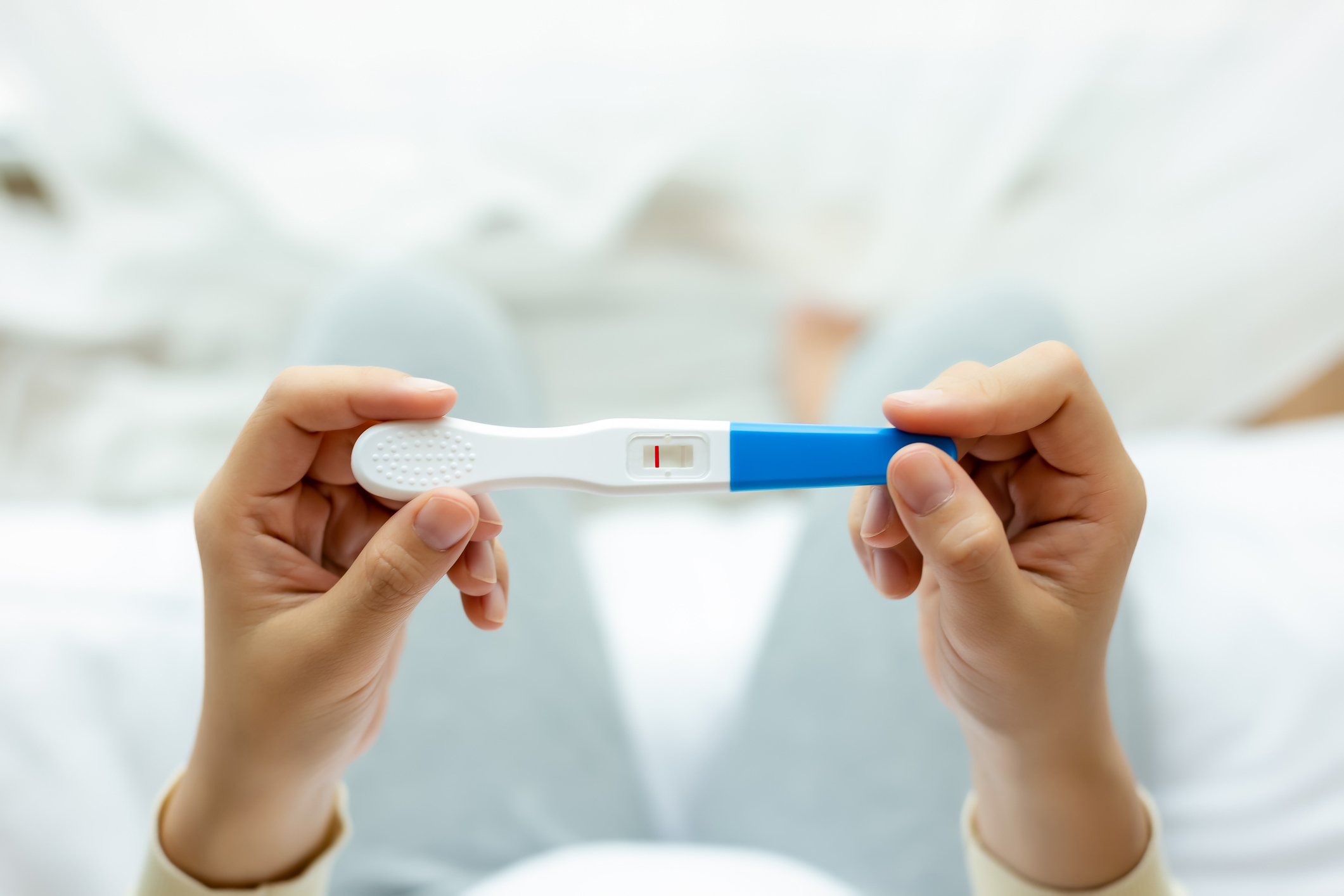
Understanding faint lines on Home Pregnancy Tests (HPTs) can be both thrilling and nerve-wracking. Let’s dive into some frequently asked questions:
1. What does a faint line on an HPT mean?
A faint line on an HPT generally indicates that there is a low level of the pregnancy hormone, human chorionic gonadotropin (hCG), in your urine. This often means you are in the early stages of pregnancy. However, you’ll want to confirm this with another test or a visit to your healthcare provider.
2. Can a faint line appear due to testing too early?
Yes, testing too early, even before a missed period, can result in a faint line since the levels of hCG are just beginning to rise. It’s best to wait a few days and test again for a clearer result, but we understand how eagerly you want the news!
3. Is it possible for a faint line to be a false positive?
Faint lines can occasionally be false positives due to reasons such as a chemical pregnancy (a very early miscarriage), residual hCG following recent pregnancy loss or fertility treatment, or even certain medications that contain hCG. Rarely, certain medical conditions might produce low levels of hCG as well. This is why a follow-up test or a consultation with your healthcare provider is vital.
4. Why does the line sometimes appear darker after the test has dried?
An evaporation line can appear where the test line should be, but it’s usually colorless or greyish. It’s important to read the test within the time frame specified in the instructions (typically 3-5 minutes) to avoid confusion with evaporation lines that can develop after the test window has passed.
5. Should I test again if I get a faint line?
Yes, it’s a good idea to test again. Using the same brand can help identify changes more clearly, and repeating the test in 48 hours allows any potential pregnancy to progress enough for hCG levels to double, often producing a darker line.
6. What if multiple tests show a faint line?
Multiple tests with faint lines likely indicate early pregnancy. But remember, confirming with a blood test at your healthcare provider’s office is the most reliable next step. Blood tests can measure the exact amount of hCG in your system, providing a clearer picture of what’s going on.
7. Can diluted urine affect the result of an HPT?
Absolutely. If you’ve consumed a lot of fluids before taking the test, your urine might be diluted, which in turn can lead to a faint line. For the most accurate results, it’s best to use the first morning urine when hCG levels are at their highest concentration.
8. Do different brands of HPTs have different sensitivities?
Yes, some HPT brands are more sensitive than others, meaning they can detect lower levels of hCG. If you’re getting faint lines, opting for a more sensitive test can sometimes yield clearer results. Checking the sensitivity on the packaging can help you choose the right one.
9. What if the faint line doesn’t get darker over time?
If the faint line doesn’t get darker with subsequent tests or begins to fade, it could be an indication of a very early pregnancy loss or that the initial test was a false positive. However, this is something to discuss with your healthcare provider to understand better.
10. Can medical conditions affect HPT results?
Certain medical conditions, like ovarian cysts or certain types of cancers, can sometimes elevate hCG levels, potentially leading to faint lines on an HPT. However, these cases are rare. If you suspect an issue, consulting with your healthcare provider will offer more insights and peace of mind.
11. How can I reduce misinterpretation of faint lines?
Following the instructions on the HPT package to the letter is crucial. Also, avoid drinking excessive fluids before the test and try to test early in the morning. If in doubt, a consult with a healthcare professional can always provide clarity.
HPTs are a wonderful tool, but they aren’t foolproof. A faint line usually indicates a low level of hCG, which may be due to early pregnancy. However, it’s important to confirm your results through follow-up testing or a visit to your healthcare provider. Taking control of your reproductive health means being informed and proactive, so never hesitate to seek professional advice if you’re unsure. Your well-being deserves careful and precise attention.
 App
App  GooglePlay
GooglePlay



